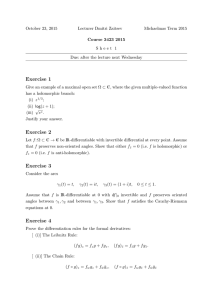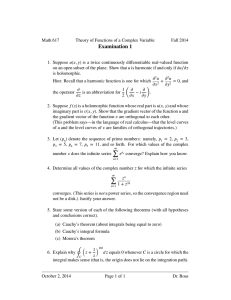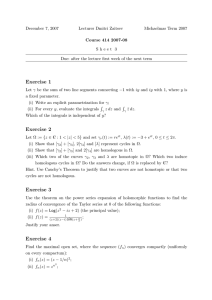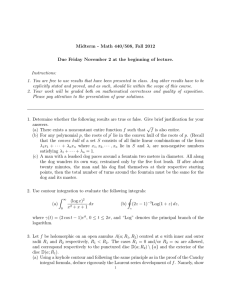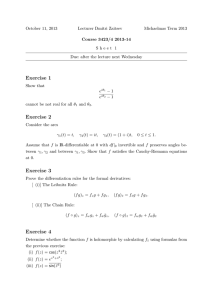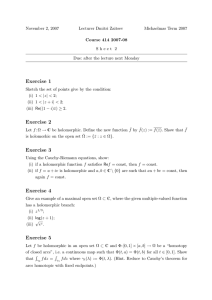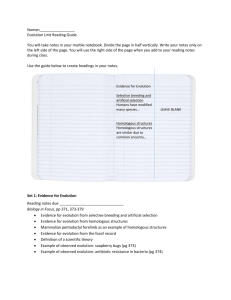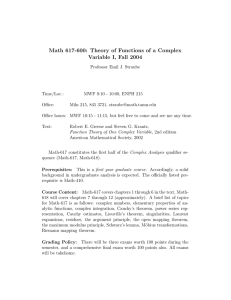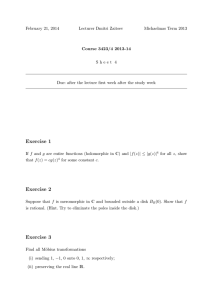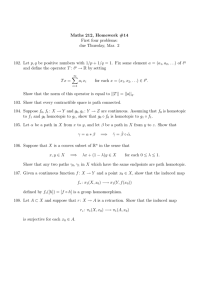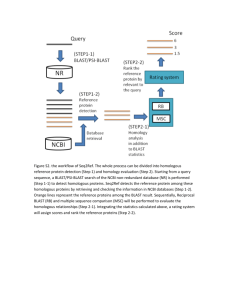December 8, 2005 Lecturer Dmitri Zaitsev Michaelmas Term 2005 Course 414 2005-06
advertisement
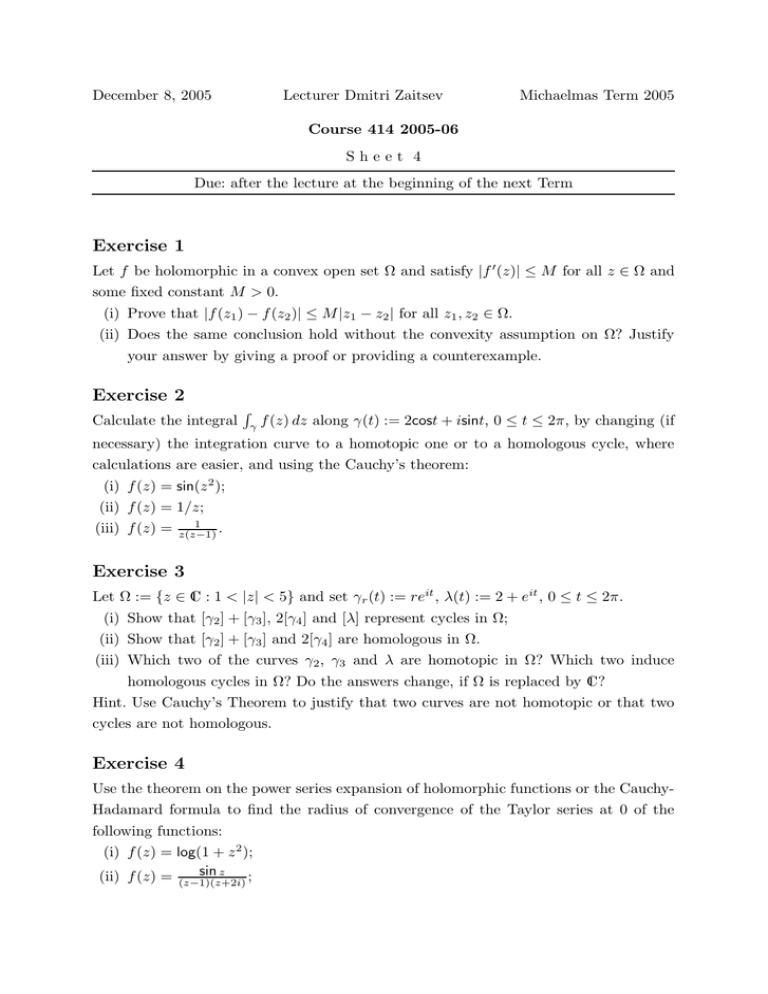
December 8, 2005
Lecturer Dmitri Zaitsev
Michaelmas Term 2005
Course 414 2005-06
Sheet 4
Due: after the lecture at the beginning of the next Term
Exercise 1
Let f be holomorphic in a convex open set Ω and satisfy |f 0 (z)| ≤ M for all z ∈ Ω and
some fixed constant M > 0.
(i) Prove that |f (z1 ) − f (z2 )| ≤ M |z1 − z2 | for all z1 , z2 ∈ Ω.
(ii) Does the same conclusion hold without the convexity assumption on Ω? Justify
your answer by giving a proof or providing a counterexample.
Exercise 2
Calculate the integral
R
γ
f (z) dz along γ(t) := 2cost + isint, 0 ≤ t ≤ 2π, by changing (if
necessary) the integration curve to a homotopic one or to a homologous cycle, where
calculations are easier, and using the Cauchy’s theorem:
(i) f (z) = sin(z 2 );
(ii) f (z) = 1/z;
1
.
(iii) f (z) = z(z−1)
Exercise 3
Let Ω := {z ∈ C : 1 < |z| < 5} and set γr (t) := reit , λ(t) := 2 + eit , 0 ≤ t ≤ 2π.
(i) Show that [γ2 ] + [γ3 ], 2[γ4 ] and [λ] represent cycles in Ω;
(ii) Show that [γ2 ] + [γ3 ] and 2[γ4 ] are homologous in Ω.
(iii) Which two of the curves γ2 , γ3 and λ are homotopic in Ω? Which two induce
homologous cycles in Ω? Do the answers change, if Ω is replaced by C?
Hint. Use Cauchy’s Theorem to justify that two curves are not homotopic or that two
cycles are not homologous.
Exercise 4
Use the theorem on the power series expansion of holomorphic functions or the CauchyHadamard formula to find the radius of convergence of the Taylor series at 0 of the
following functions:
(i) f (z) = log(1 + z 2 );
sin z
;
(ii) f (z) =
(z−1)(z+2i)
